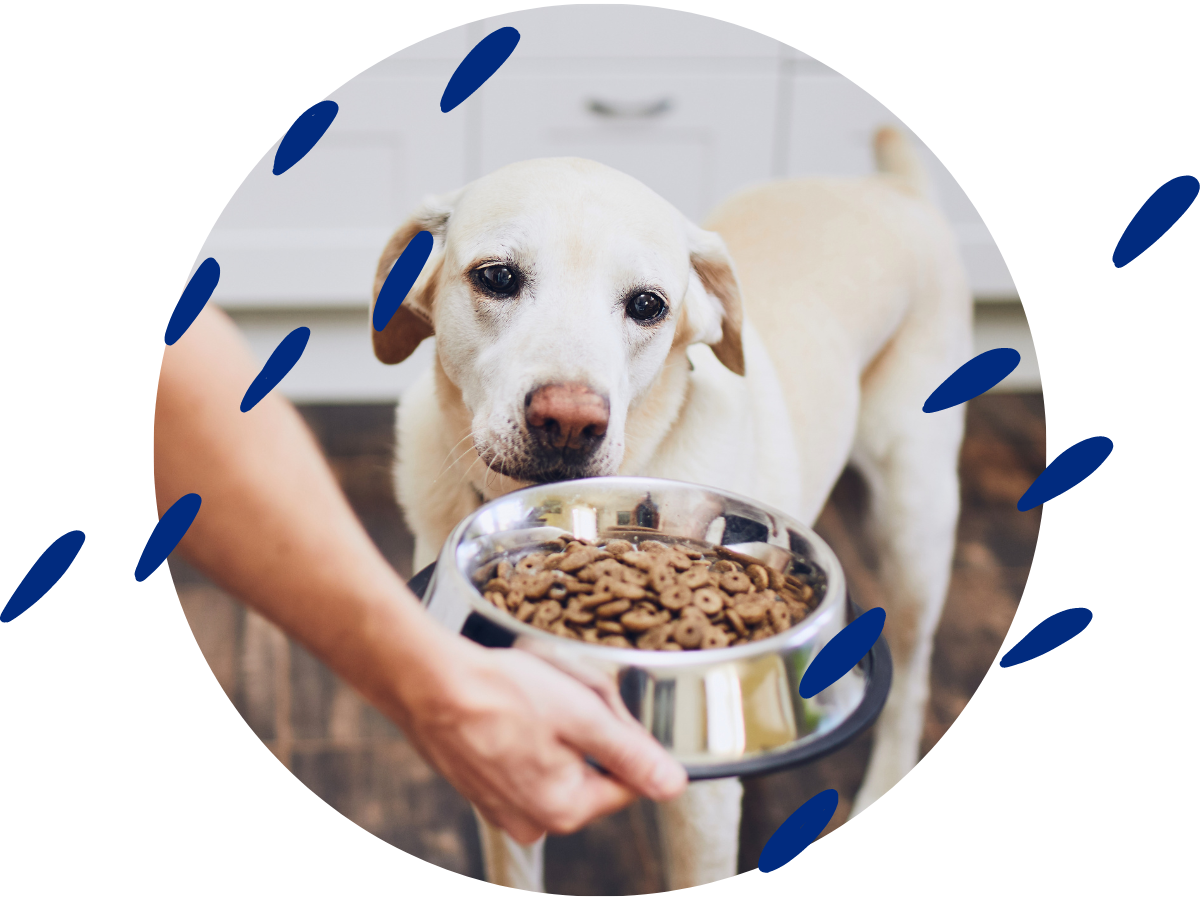Senior Pet Nutrition

Senior Pet Nutrition
Senior Pet Nutrition
One of the things that people often ask us about their senior pets is what should they eat. The pet food industry has done a good job marketing specific diets to the senior pet demographic, and yet, just because your pet has reached a certain age doesn’t mean that a general “senior” pet diet will be right for him or her. In fact, many older pets do best on traditional “adult” food long after they’ve hit that senior age bracket.
As pets age, their digestion can change. One common change is a decreased metabolism and a lower requirement for calories. This is due to many causes, including significantly, decreased activity due to arthritis pain. So managing a senior pet’s weight is often a focus of nutrition in the later years. Just decreasing calories, though, isn’t the complete solution, and some pets actually need an increase in calories.
Proper nutrient amounts can be complicated and very individual. Excess fats may create soft stools in some pets. Higher fiber can be beneficial in some older pets with gastrointestinal issues but can be problematic for other pets. Geriatric pets, especially cats, tend to lose muscle mass (a process called sarcopenia). Maintaining adequate muscle in an aging pet can be challenging. For instance, senior cats do not absorb protein well, so many cats need to increase their protein intake to keep up with requirements. If they don’t get their protein from their food, they start to break down muscle. It can be hard to find a diet high enough in protein without excess fat-producing calories for some of these patients.
Complicating things, diseases common in older pets (such as dental disease or kidney problems) may affect the type of food that they can or should eat. Some pets, especially cats, need smaller more frequent meals as they age. If your pet eats less volume than previously, she or he may need a denser calorie diet to maintain optimal weight.
So as you can see, there is not a one size fits all senior diet for older pets – so it’s best to discuss nutritional options with your family veterinarian. Just because those grey hairs have started to appear on their muzzles doesn’t mean you need an automatic diet change.
